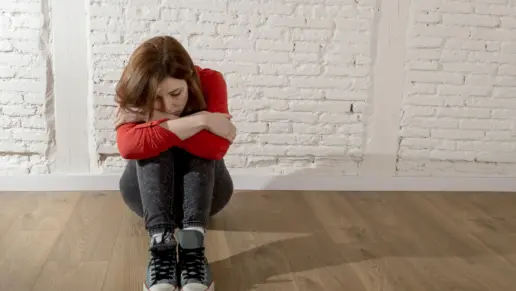Children and adults with attention-deficit hyperactivity disorder (ADHD) and people with narcolepsy are treated using the medication Concerta. It stimulates the central nervous system, helping the person pay attention and focus.
What Is the Drug Concerta?
Concerta, as well as the generic drug for Concerta, methylphenidate, stimulates the brain’s prefrontal cortex, increasing dopamine and norepinephrine levels. When this occurs, you will feel less impulsive, fidgety, and restless but more awake and attentive.
Doctors typically prescribe Concerta for ADHD symptoms, but it may help other conditions, like narcolepsy. Concerta helps people with narcolepsy stay awake and aware to continue ordinary tasks like driving.
Concerta is typically given as part of a comprehensive treatment plan that includes counseling, monitoring and education. You may receive the immediate-release form, which delivers the medication all at once, or the extended-release version, which releases methylphenidate hydrochloride slowly over several hours.
Concerta is only available when your doctor prescribes it for a legitimate medical need.
While Concerta is most widely known for helping control ADHD and narcolepsy, it is an off-label prescription for the following:
- Fatigue in cancer patients
- Refractory depression in older persons
- Apathy in those with Alzheimer’s disorder
- Memory problems
Concerta is classified as a Schedule II drug under the Controlled Substance Act. The Drug Enforcement Agency chose this classification due to its risk for misuse and addiction.
Is Concerta the Best Medication for ADHD?
Concerta and other methylphenidate medicines have shown high effectiveness in treating ADHD. It is one of the most common drugs prescribed for the condition. While it can be the best medicine for some it may not be the best for you.
Comprehensive physical and psychological exams help doctors determine whether stimulants are the best treatment for your symptoms. Other ways to increase dopamine and norepinephrine levels in your brain do not include stimulants.
Many doctors prescribe antidepressants that specifically work on the dopamine and norepinephrine neurotransmitters in the brain. The difference is that antidepressants take weeks or months to begin working, compared to stimulants that work immediately.
Taking Concerta for ADHD can improve various aspects of your life, like helping you become a better student or increase productivity at work.
The drug itself has several advantages, such as the following effects:
- Enhances performance
- Reduces restlessness
- Increases attention and awareness
- Improves concentration and memory
- Reduces nasal and sinus congestion
- Aids in asthma relief
- Helps people lose weight
- Reduces depressive symptoms
The most common disadvantages of Concerta for ADHD include the inability to fall asleep or stay asleep, insomnia and nervousness.
Other cons of the Concerta drug class and generic drugs for Concerta include the following effects:
- Dizziness
- Headaches
- Tics
- Digestive problems
- Dry mouth
- Lack of appetite and weight loss
- Abdominal pain
- Heart palpitations or skipping beats
- Sweating
- Decrease in libido
- Agitation and irritability
- Mood swings
Children taking Concerta for ADHD long term may experience reduced height or slowed growth. There is always a risk for drug-to-drug interactions.
For example, if you are taking blood pressure medicine or certain antidepressants, an interaction may occur. One reason is that Concerta can change the effectiveness of other drugs by changing how they perform in your body.
Concerta Misuse
If you are given Concerta in low doses and follow prescription instructions, you are less likely to develop an addiction to the medication. However, if you take more than prescribed or take it without having a doctor’s prescription, the risk of addiction increases.
The drug affects brain functioning and, at higher doses, use can trigger addiction mechanisms. Misuse of Concerta for ADHD can lead to coma and death, depending on factors such as the amount you took, how long you’ve been taking it and prior medical conditions.
Concerta misuse can occur in various ways, such as:
- Not following orders on the prescription
- Using more of the drug than prescribed
- Using someone else’s prescription
- Mixing the drug with other drugs or alcohol
- Crushing and snorting the drug
- Crushing, liquifying and injecting the drug
- Trading your prescription pills for the drug of your choice
The 2023 National Drug Use and Health Survey results show prescription stimulant misuse occurs among all age groups ranging from teens to older adults.
Survey results reveal the following trends in stimulant misuse by age bracket:
- 3.9 million people over 12
- 1.1 million young adults 18-25
- 2.6 million adults over 26
- 230,000 adolescents between 12 and 17
Prescription stimulants in the survey included methylphenidate products like Concerta for weight loss or ADHD.
Frequently Asked Questions (FAQs)
What Are the Side Effects of Concerta?
Both the intended and unwanted effects for the Concerta drug class may vary due to many factors, including age, gender, weight and other medical conditions. Common effects include feeling alert, awake and extremely focused.
However, it is possible you can experience any of the following adverse side effects:
- Nausea or vomiting
- Dizziness
- Headaches
- Excessive sweating
- Nervousness or the jitters
- Decrease in appetite
- Anxiety
- Insomnia
- Paranoia
- Itching
- Psychosis
- Shortness of breath
- Chest pain
- High blood pressure
- Heart-related events
- Seizures
Misusing Concerta for ADHD or recreational use may increase the adverse side effects. It is possible to experience heart or organ failure that can be fatal.
What Is Concerta Used for?
Concerta’s main uses are to treat ADHD and narcolepsy. However, it has also been effective for some people with treatment-resistant depression, extreme fatigue or fatigue due to cancer, and breathing-related issues like asthma and congestion.
Some doctors prescribe it for Concerta weight loss. Concerta is not usually the go-to treatment for weight loss, however. Other amphetamines may be more beneficial than Concerta for weight loss.
Can You Overdose on Concerta?
Anyone with a heart condition should avoid taking Concerta due to the risk of having a cardiac event that can lead to death. The drug can be toxic for anyone if they are mixing it with other prescriptions or illicit drugs.
Taking too much Concerta at one time can lead to a series of adverse symptoms, like:
- Vomiting
- Delirium
- Hallucinations
- Psychosis
- Violence
- Convulsions
- Rise in body temperature
Concerta overdose and death can occur. It is crucial to call 911 for help at the first sign of an overdose. Stay on the phone with the operator and follow their instructions until emergency medical teams arrive.
Can You Lose Weight on Concerta?
Because Concerta for ADHD is a stimulant, you can lose weight on it because stimulants suppress your appetite. Concerta also speeds up the way your body uses energy, increasing metabolism. These effects may seem ideal, but remember, you may also experience excessive sweating, nausea, vomiting and an increased heart rate, all of which can cause weight loss but are uncomfortable.
Doctors prescribe Concerta for weight loss, starting at the lowest doses and increasing as needed. Misusing Concerta as a weight loss product can negatively affect your body. Also, weight loss is not a guarantee.
You may maintain your weight or gain weight while on Concerta. Again, many factors affect weight changes, and you should talk to your doctor about them before taking Concerta or the generic drug for Concerta.
The U.S. Food and Drug Administration (FDA) has not approved Concerta for weight loss because there have not been clinical trials demonstrating a clear benefit that outweighs potential risks for this indication.
Is Concerta Addictive?
Yes, misusing Concerta by taking more than the prescribed amount and taking it for long periods without a prescription can lead to addiction.
Signs of Concerta addiction are the same as those of other stimulant addictions and may include the following:
- Using more stimulants for longer periods
- Inability to cut back or control the use of stimulants
- Spending much time in seeking, using or recovering from stimulants
- Craving stimulants
- Using stimulants interferes with home, work, school or social responsibilities
- Continuing to use it even though it causes problems with relationships
- Giving up previously enjoyed activities to use stimulants
- Using stimulants in situations that put you in danger
- Continuing stimulant use even though it worsens physical or psychological issues
- Building a tolerance to stimulants
- Experiencing withdrawal symptoms
If you meet two to three criteria, you may have a mild addiction to stimulants. Having four to six criteria typically corresponds to moderate addiction, and experiencing more than six criteria may mean that you have a severe addiction.
Concerta Withdrawal and Detox
Withdrawal symptoms from the Concerta drug class can range from mild to severe. Stimulant withdrawal is often less severe than opioid or alcohol withdrawal and is less dangerous.
Some may experience nausea, muscle pains and aches and obsessive thoughts about how to get more Concerta to continue use.
Doctors can treat your symptoms specifically when you seek help to detox from Concerta or other stimulants. There is no specific drug approved by the FDA to treat Concerta withdrawal symptoms.
However, there are many ways to treat nausea, vomiting, headaches and cravings. Entering a detox program, whether inpatient or outpatient, gives you access to medical staff and medications that can treat your symptoms in a safe environment. You can also participate in programs to learn how to avoid relapsing on stimulants.
Rehab and Treatment Options for Concerta Dependency
Rehab and treatment options for Concerta dependency include inpatient and outpatient programs. The first step to getting treatment is to undergo a comprehensive assessment with a licensed mental health and substance abuse professional. The assessment results determine which level of care best meets your needs.
Inpatient Detox
Inpatient detox occurs in a hospital or other residential setting, with 24/7 medical care by doctors, nurses and other treatment staff. You receive treatment for withdrawal symptoms and are medically stabilized, at which point you can transfer to a rehab program.
Inpatient Rehab
Inpatient rehab is a treatment facility where you stay 24/7 for a specified time. While in rehab, you participate in medication management, individual and group therapies, 12 Step programs, family therapy and alternative treatments. Depending on the severity of your withdrawal symptoms, you can start recovery here.
Partial Hospitalization Program (PHP)
A PHP is an outpatient service that typically meets at a treatment facility five days a week for at least five hours. You participate in individual and group therapies, family therapies and other programs similar to inpatient rehab.
You may undergo random Concerta drug tests and testing for other substances to ensure compliance with the program. The difference between a PHP and inpatient treatment is that you return home at night in the PHP. If your withdrawal symptoms are mild and you have a good support system at home, you can begin recovery treatment at this level.
Intensive Outpatient Program (IOP)
An IOP is another outpatient service that is less intensive than a PHP. With an IOP, you meet three to four times weekly for three to four hours. You continue learning recovery skills through individual and group therapies. You may also be given random Concerta drug tests at this level. IOPs allow you the time to work and take care of home responsibilities while not in treatment.
Individual Counseling
Individual counseling refers to one-on-one therapy between you and a licensed professional. This level can be a starting point for someone with mild withdrawal symptoms, a secure job and an excellent support system. It can also be a final step if you have worked your way down from inpatient to outpatient services.
Community Support
Peer support groups exist in nearly all communities. Some have a religious element, such as 12 Step facilitation groups or Celebrate Recovery. Non-religious support groups include SMART Recovery, Women for Sobriety and LifeRing.
Find Your Starting Place
Many people overcome stimulant use disorders involving Concerta. Whether you have only taken Concerta a few times or feel you cannot stop using it, treatment is available.
If you don’t know where to start, that’s okay. Call one of our dedicated professionals today. They can connect you with the right treatment provider to perform an assessment and talk to you about your best treatment options.
Featured Substance Abuse Addiction Centers
Finding facilities near you…




